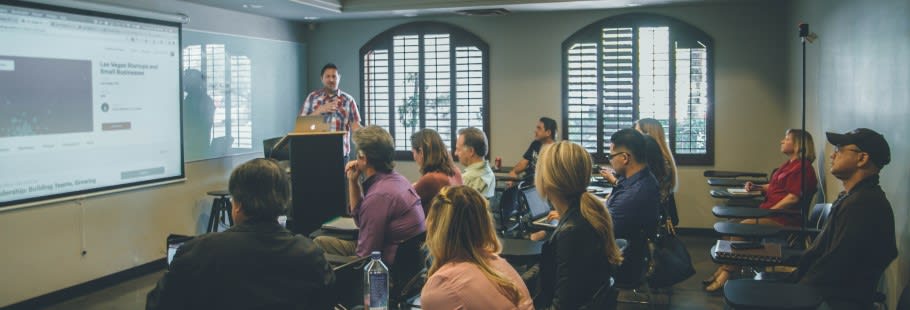Month 8: Sharing your research during your PhD
Whilst undertaking research can be an isolating experience, a big component of the PhD is sharing your work with others. This could be within your department, at specialised networking seminars, or at international conferences. Knowing the different ways to disseminate your findings is important; here are my top tips for each way to share your research during your PhD.
#1 Academic papers in peer-reviewed journals
This is probably the most obvious way of sharing your research with the academic community. Submitting your work to a peer-reviewed journal is an intensive experience, but having your research published is a nod of approval from the academic community and can help you progress in your academic career. Taking the time to write up your research and receive peer-reviewed feedback can also help with producing that final year thesis.
My top tips for getting your work published are: ensure you select the most relevant journal, edit your manuscript to fit the journal’s guidelines, and make any changes requested by the editor in the timescale required (be aware this can often be a very quick turnaround).
#2 Present within your university and department
Internal presentations within your department are the best way to share your research with a kind, supportive audience. Many postgraduate schools run a regular session for students to present. At my university we have a weekly lunchtime lecture that all students present at annually. Whilst it can seem daunting, presenting in these slots allows you to increase your confidence presenting and get used to answering questions. This will make presenting at external meetings much easier so I would suggest you take this opportunity whenever it arises!!
When you’re early in your PhD, sharing your experimental plans can be a great way to get suggestions of methods or solutions to problem that you’d not thought of. Later, you can share your results to find out the main questions you need to address in any written discussion or in your viva.
#3 Poster presentations
Poster presentations are a great way to share your work at conferences, particularly early on in your PhD. Posters are typically presented during coffee breaks at conferences with 100s of posters being set up in the same hall. Your poster needs to catch the attention of someone walking by and make it as easy as possible for them to understand your findings.
Make sure your graphs and figures take up the majority of the poster and any text is minimised. Keep the number of references to a minimum and make sure your main message is clear. Also, include your contact details so that people can get in touch if they have further questions. Most postgraduate schools run sessions on how to make a poster so look out for any help provided by your university!
#4 Oral presentations at conferences
Later in your PhD you may have the opportunity to do an oral presentation at a conference. This is a huge platform that can elevate your standing within the academic community, so make sure you are well prepared. You will be given a time slot (usually 10-15 minutes). Practice your presentation and make sure you can keep to time– you don’t want to be the person who has to be asked to stop as they are overrunning!! Do trial runs with your supervisors, other PhD students in your department, and generally anyone who will listen!
Set the scene at the start of your presentation so any non-specialists can still follow along. Cover all the sections of a normal paper (introduction, methodology, results, discussion, future directions) and make your research question clear so you can explain why the work is important.
Whilst presenting can be daunting, it is a big accomplishment to be accepted so always take the opportunity if it arises!!
#5 Outreach events
All the previous ways of sharing your work focus on an academic setting. However, it’s important that the findings of your PhD can be shared with everyone who may benefit, including the local community, policy makers or specialised groups. For example, my research project focuses on protein intake in older adults so part of my outreach should involve events that the over 70s are able to attend, as well as policy makers and nutritionists.
Taking part in outreach events ensures that your research leads to real-world changes and benefits people. Outreach events are a great way to share your work and add to your CV. Many postgraduate schools run events that you can get involved in either presenting research or event management. Find out what events your school or local community runs and get involved! And if there isn’t anything, then consider starting your own!
Getting out of your research bubble and sharing your findings with the wider community is exciting and for me, it reminds me why my work is important and why I love what I do. Look for ways to get involved in postgraduate events and build your network as early as possible. Next month I will be sharing my research in a poster format at a conference for PhD students specialising in food and nutrition – wish me luck!
Looking for a PhD?
Head over to our course lisings to find your perfect PhD opportunitiy.
Our postgrad newsletter shares courses, funding news, stories and advice

 Continue with Facebook
Continue with Facebook





